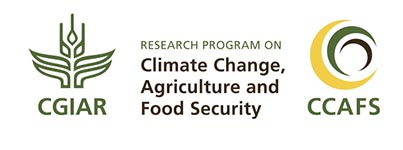The answer is, as always, complex. As a result of rising carbon dioxide (CO2) levels from fossil-fuel combustion, industry, and land-use change, important plant nutrients, such as iron, zinc and protein of major grains, including barley, rice and wheat are declining; some forage plants used by grazing livestock might also be affected. Other crops are partially or not at all affected because of the way they harvest nitrogen or perform photosynthesis. The loss of dietary nutrients in foods could translate to increased nutritional deficiency for hundreds of millions of poor people already on the brink of deficiency.
What can be done about this? Key avenues to address this challenge identified by writers Matt Smith, Phil Thornton and Sam Myers include increased investment in breeding of cultivars with reduced CO2 sensitivity, as well as focusing on breeds with higher overall micronutrient contents. A second avenue directly focuses on reducing nutritional deficiencies through fortification of foods. Moreover, improved nutritional monitoring is essential to ensure that deficiencies can be tackled quickly. And of course, more progress needs to be made in the fundamental area of curbing greenhouse gas emissions and thus slowing the rise of CO2 levels globally.


